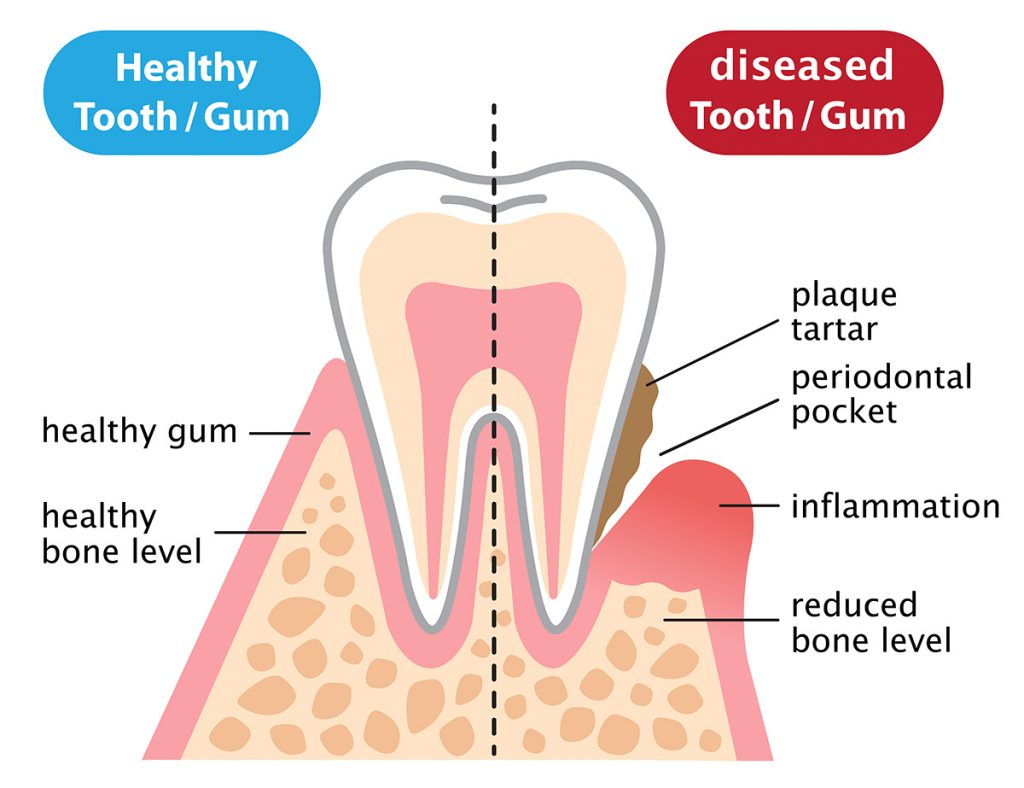Periodontal Therapy
Why is Periodontal Disease a problem?
Periodontal disease is an inflammatory process beginning in the gums. The bacteria found in plaque produces toxins that irritate the gums, which may cause them to turn red, swell and bleed easily.
Pain is usually not associated with periodontal disease. If this irritation is prolonged, the gums separate from the teeth, causing pockets (spaces) to form. Untreated, the disease progresses down the root surface into the underlying bone. The result is the supporting gum tissue and bone that holds teeth in place deteriorate resulting in bone loss which destroys the support of your natural teeth leading to tooth loss.

Factors that Increase Chances of Periodontal Disease
- Tobacco use
- Puberty (increased hormones increase gum sensitivity)
- Diabetes
- Stress
- Clenching and grinding teeth
- Various medications
- Poor nutrition
Steps to prevent periodontal disease include:
- Regular dental visits for professional cleaning
- Puberty (increased hormones increase gum sensitivity)
- Regular periodontal evaluations

